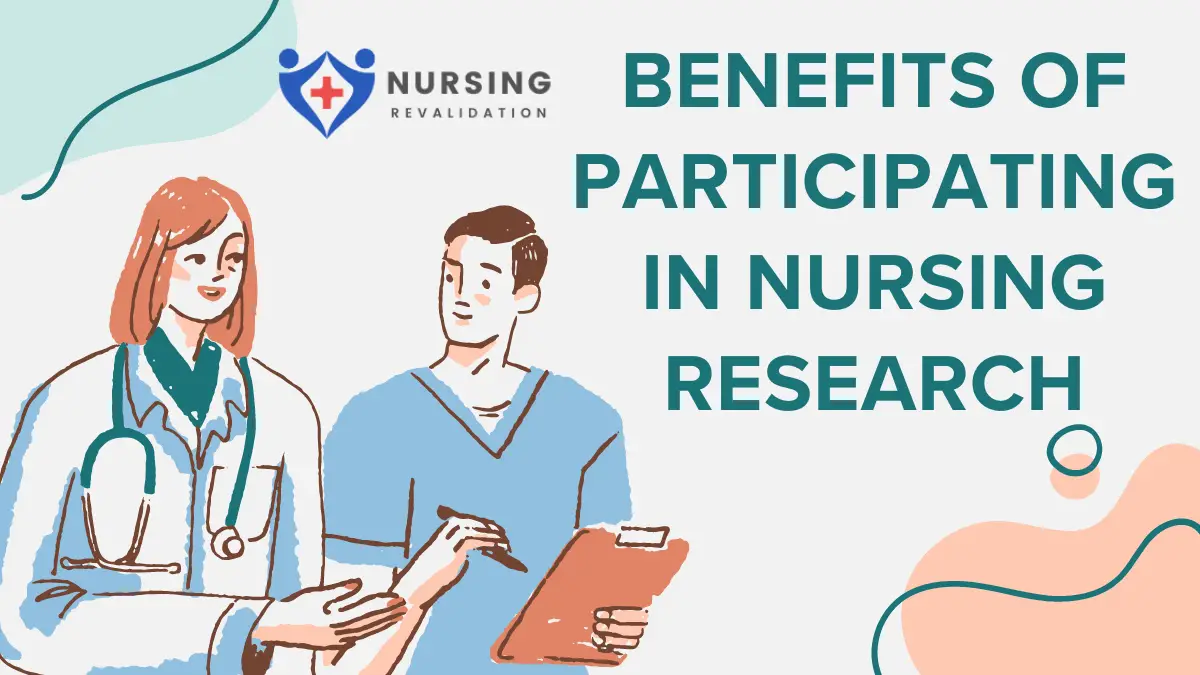Nursing research plays a pivotal role in advancing healthcare practices and improving patient outcomes. By actively participating in nursing research, professionals not only contribute to the body of knowledge in their field but also reap numerous personal and professional benefits. In this comprehensive guide, we delve into the importance of nursing research participation and the myriad advantages it offers to nurses and the healthcare community.
Case Study: Impact of Nursing Research on Patient Outcomes
| Study Title | Key Findings | Implications for Practice |
|---|---|---|
| “Effectiveness of Nurse-Led Education on Medication Adherence in Patients with Chronic Conditions” | Patients receiving nurse-led education demonstrated a significant improvement in medication adherence rates compared to the control group. | Implementation of nurse-led educational interventions can enhance medication adherence and promote better management of chronic conditions, leading to improved patient outcomes and reduced healthcare costs. |
Why Nursing Research Matters
Nursing research encompasses a wide array of studies aimed at enhancing the delivery of healthcare services, developing evidence-based practices, and addressing pressing healthcare challenges. From exploring innovative treatment modalities to investigating the effectiveness of nursing interventions, research in nursing is essential for driving continuous improvement in patient care.
Benefits for Nurses
- Professional Growth and Development
Participating in nursing research exposes nurses to cutting-edge knowledge and methodologies, fostering their professional growth. Engaging in research activities cultivates critical thinking, analytical skills, and the ability to evaluate and apply scientific evidence in clinical practice. - Enhanced Clinical Expertise
Involvement in research allows nurses to deepen their understanding of complex healthcare issues and refine their clinical expertise. By staying abreast of the latest developments and evidence-based practices, nurses can deliver higher-quality care and contribute to better patient outcomes. - Opportunities for Networking and Collaboration
Collaborating on research projects provides nurses with opportunities to network with colleagues, researchers, and healthcare stakeholders. These connections can lead to interdisciplinary collaborations, knowledge exchange, and future career opportunities.
Benefits for Patients and Healthcare Systems
- Improved Patient Care and Outcomes
Nursing research contributes to the development of best practices and interventions aimed at enhancing patient care and safety. By integrating evidence-based findings into clinical practice, healthcare providers can deliver more effective treatments and interventions, ultimately leading to improved patient outcomes. - Enhanced Healthcare Quality and Efficiency
Evidence-based practices resulting from nursing research help optimize healthcare delivery, leading to increased efficiency and cost-effectiveness. By identifying and implementing strategies to improve processes and outcomes, nursing research plays a vital role in advancing healthcare quality and reducing healthcare disparities. - Informed Decision-Making and Policy Development
Research findings inform healthcare policies, guidelines, and decision-making processes at local, national, and global levels. By generating robust evidence, nursing research contributes to informed policy discussions and the development of initiatives aimed at addressing public health challenges and improving healthcare delivery systems.
Conclusion
Participating in nursing research offers numerous benefits for nurses, patients, and the healthcare system as a whole. From professional growth and enhanced clinical expertise to improved patient care and healthcare quality, research involvement is essential for driving innovation and advancing evidence-based pra

